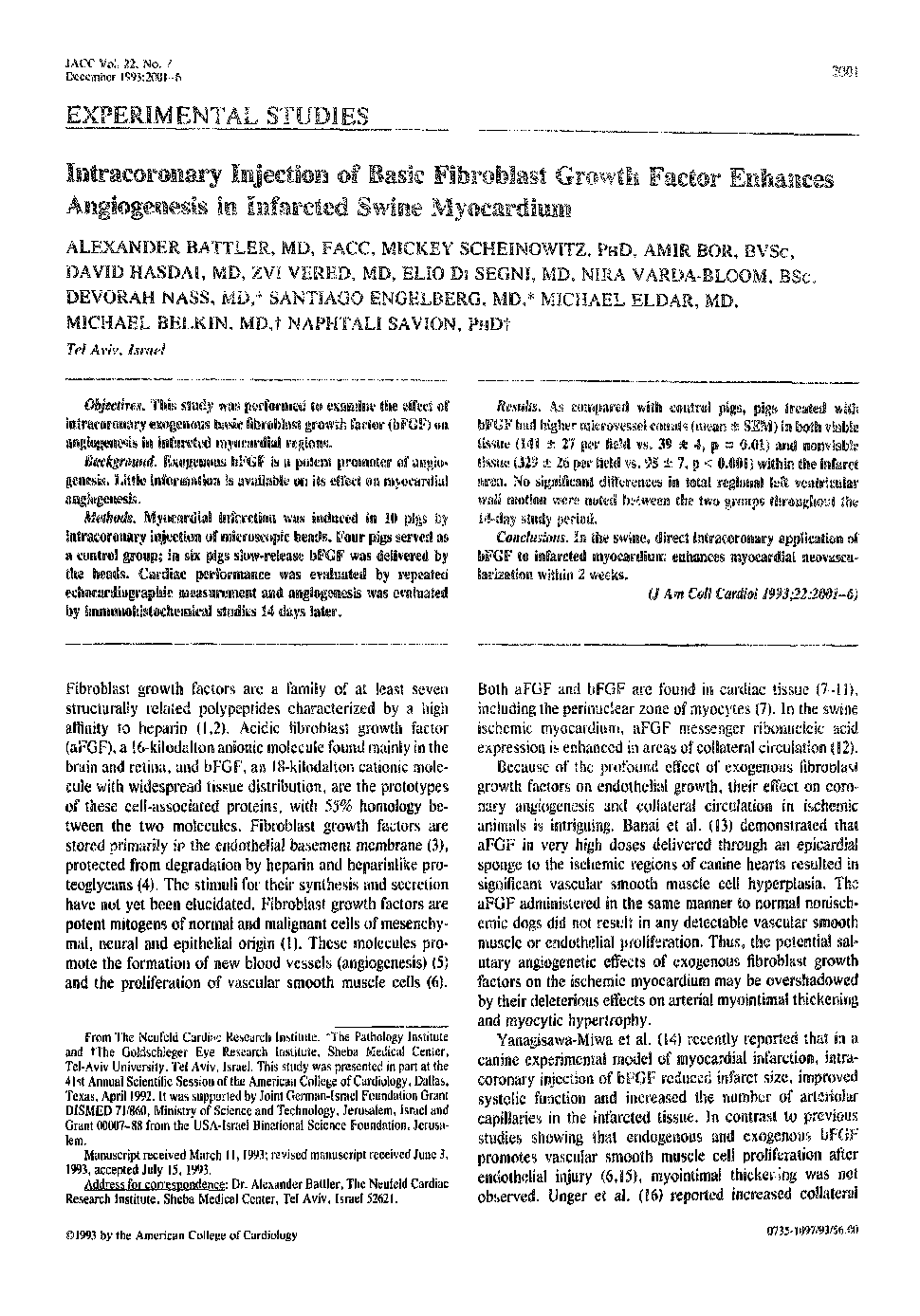| Article ID | Journal | Published Year | Pages | File Type |
|---|---|---|---|---|
| 2956086 | Journal of the American College of Cardiology | 2006 | 6 Pages |
Objectives. This study was performed to examine the effect of intracoronary exogenous basic fibroblast growth factor (bFGF) on angiogenesis in infarcted myocardial regions.Background. Exogenous bFGF is a potent promoter of angiogenesis. Little information is available on its effect on myocardial angiogenesis.Methods. Myocardial infarction was induced in 10 pigs by intracoronary injection of microscopic beads. Four pigs served as a control group; in six pigs slow-release bFGF was delivered by the beads. Cardiac performance was evaluated by repeated echocardiographic measurement and angiogenesis was evaluated by immunohistochemical studies 14 days later.Results. As compared with control pigs, pigs treated with bFGF had higher microvessel counts (mean ± SEM) in both viable tissue (141 ± 27 per field vs. 39 ± 4, p = 0.01) and nonviable tissue (329 ± 26 per field vs. 95 ± 7, p < 0.001) within the infarct area. No significant differences in total regional left ventricular wall motion were noted between the two groups throughout the 14-day study period.Conclusions. In the swine, direct intracoronary application of bFGF to infarcted myocardium enhances myocardial neovascularization within 2 weeks.
